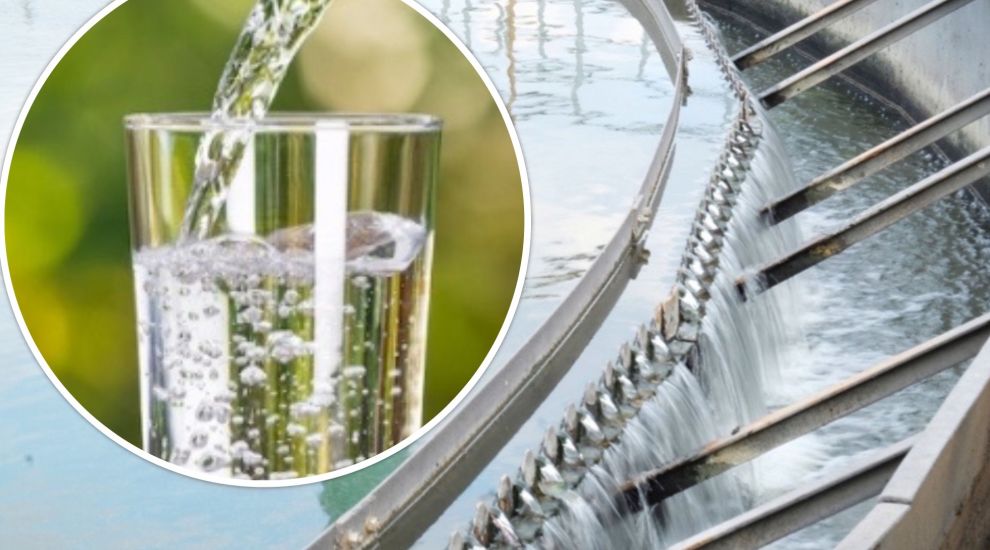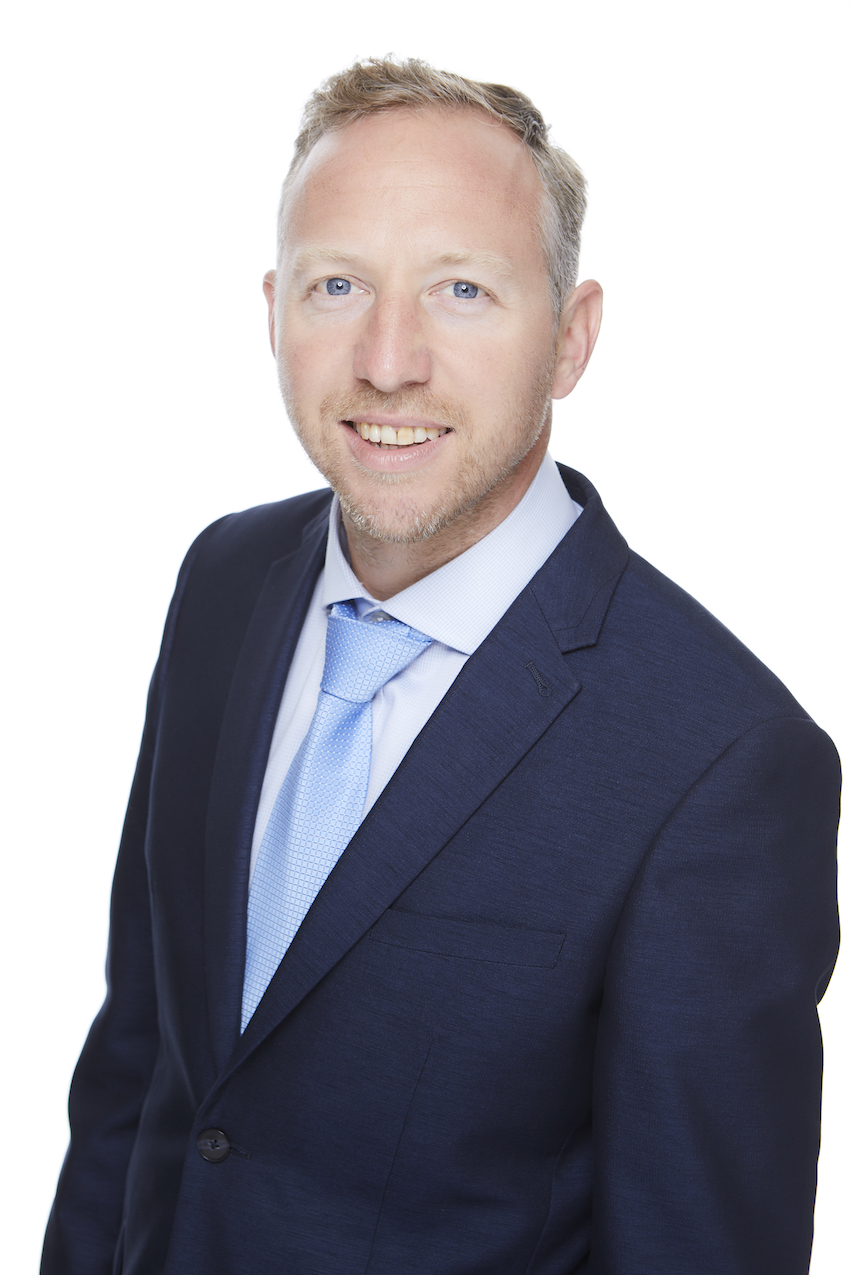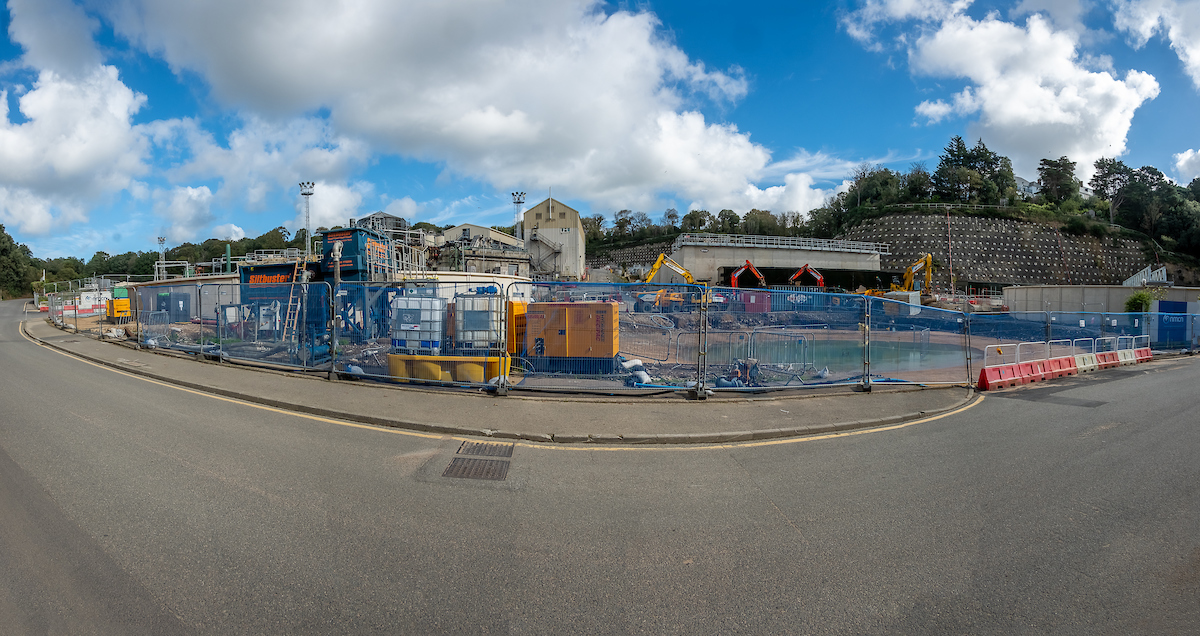


Islanders may well have to have to get used to drinking water recycled from toilets, sinks and washing machines if we are going to avoid flooding a reservoir or extending an existing one, Jersey Water has said.
Reusing treated effluent is a tried and tested method of maximising the use of water.
Another self-governing island with limited water resources, Singapore, is investing millions of dollars in increasing the amount of sewage that is used again.
Recycled wastewater can now meet 40% of Singapore’s water demand, a figure that is expected to rise to 55% by 2060.
While most is used for industrial purposes, some of it is added to drinking water supplies in reservoirs in the city-state of 5.7 million people.
Recently, the head of the UK’s Environment Agency said that people needed to be “less squeamish” about drinking from sewage treatment plants.
Sir James Bevan told the Sunday Times said that drinking water reprocessed from sewage is “perfectly safe and healthy, but not something many people fancy”.
Mark Bowden, Jersey Water’s Asset Manager, said that the technology was neither new nor radical, nor did it appear that islanders were averse to the idea of drinking treated sewage.
“The process for treating sewage effluent could be described as ‘desalination+’ he said. “It is a multi-stage process involving coagulation, clarification, blending, filtration, and advanced reverse oxidation, followed by disinfection and conditioning.
“In some ways, effluent reuse already happens in the UK when treated sewage is released into a river, then downstream, water is abstracted to be treated and distributed for drinking.”

Pictured: Jersey Water's Asset Manager Mark Bowden.
Mr Bowden said that Jersey Water had considered effluent reuse in its 2018 Resource Management Plan.
Then, it had set up focus groups to assess people’s reaction to the idea of drinking treated sewage. Far from being squeamish, most people took a practical stance, he said, expressing their trust in Jersey Water to treat it properly.
In its latest ‘Water Resources and Drought Management Plan’, published last year, the company considered treating water from Bellozanne but excluded the option, preferring 11 others instead, including increasing reservoir storage and extending the desalination plant at La Moye.
The measures are being considered to meet an expected water shortfall caused by a rising population and global warming.
However, Mr Bowden said that recycling wastewater from Bellozanne could return as one of a range of options to meet the expected shortfall.
It would have to be supplemented with other measures because even if every litre of flushed toilet water, shower run-off or emptied bucket was used, there would still be an 8m-litre-a-day shortfall in times of serious drought.

Pictured: The Government is currently building a new water treatment plant at Bellozanne.
He added that any system would likely to be ‘indirect’, in that the treated waste water would be added to and blended with raw water in reservoirs, rather than kept separate and recycled, as treated waste water is in submarines and oil rigs.
Jersey Water supplies an average of around 20m litres of water per day to some 37,000 homes and 3,600 commercial properties.
Each islander uses, on average, 115 litres a day when one adds all the showers, baths, washing machine cycles and dishwasher runs that frequently occur in households.
That number has come down since Jersey Water started installing smart meters, which allow both the company and customers to keep track of water usage.
Estimated water demand under dry weather conditions for Jersey Water is expected to increase by 15% from around 21m litres per day in 2019-20 to nearly 24m litres a day by 2044-45.
The company has raised the prospect of flooding another valley, including Mourier Valley in St. Mary, to meet future demand; however, Mr Bowden said that islanders may regard drinking treated wastewater as a more palatable alternative to losing land to a reservoir.
He added that the island would have regularly run out of water had not Queen’s Valley been flooded in the 1980s.
Jersey Water recently brought in a hosepipe ban, which could last four months, in response to this summer's long dry spell.
It is also running the desalination plant at La Moye to help refill depleted reservoirs.
Comments
Comments on this story express the views of the commentator only, not Bailiwick Publishing. We are unable to guarantee the accuracy of any of those comments.